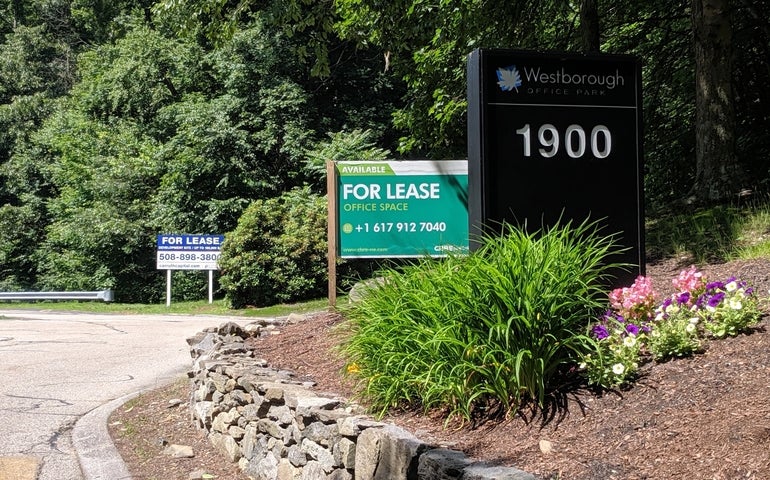Office market reports for the first quarter of the year — the last period before a coronavirus-related recession may take a major hold on the industry — indicate continued relatively high vacancy rates for MetroWest, according to two Boston property firms.
Hunneman of Boston reports an 18.4% vacancy rate for 495 West was behind only 495 North for the worst in Greater Boston, up from 17.5% a year prior and 17.6% two years ago. The 495 West region includes Marlborough, Hudson, Northborough, Southborough, Westborough, Berlin, Hopkinton, Holliston and Upton.
Framingham and Natick, which Hunneman groups apart from the rest of MetroWest, had an office vacancy rate of 14.5%, an improvement from 17.3% a year ago and 15.6% two years ago.
Average asking rents in 495 West were $21 a square foot, and Framingham and Natick were $27, Hunneman said. That compares to $41 per square foot for the Boston regional average and prices as high as $77 in the Back Bay.
Colliers, which includes Framingham and Natick in its 495 West region, reported an 18.3% vacancy rate for the region, better than only 495 North. Worcester’s vacancy rate was 13.3%. Those rates a year ago were 20.1% and 9.7%, respectively, a year ago.
Colliers reported a loss of more than 111,000 square feet of occupied office space in Worcester in the first quarter, with a remaining supply of nearly 2.9 million square feet.
First-quarter numbers may already reflect the start of the coronavirus-related business slowdown, Colliers said.
“The month of March has been effectively on hold. Unless deals are expiration-driven, many tenants are taking a wait-and-see approach,” the firm said in its report, noting that public companies have seen their valuations cut significantly and venture capital firms are less eager to invest in startups.
“Recession appears to be a formality at this point, with the question ultimately being how bad it will be,” Colliers said, before giving reassurance on Boston’s diversified economy.
“It is full of innovative and creative firms. We are a global center for health care and education,” Colliers said. “That hasn’t changed, and will not.”

